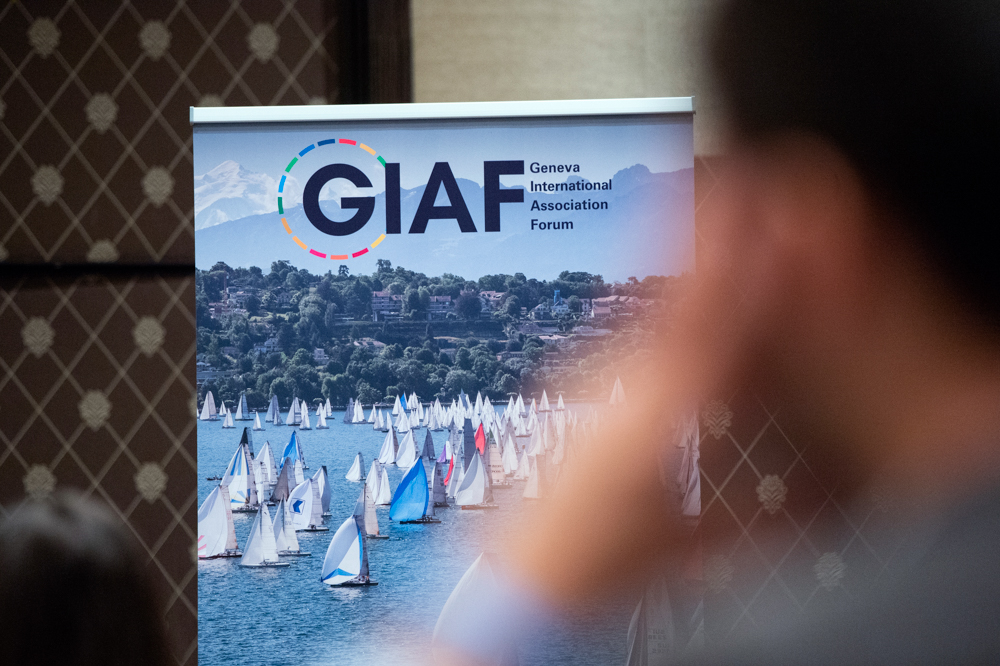“It can get lonely when you work in an association,” said Barbara Koelman, Event Manager at SETAC Europe. “It’s good to be able to get out of the office and meet with people who face the same challenges as you. I believe a lot can be solved by sharing best practices and discussing issues some of us are facing. This is exactly what this Forum provided: a platform where association leaders could freely express themselves and find solutions together.”
Bringing together Geneva-based and international and European associations and non-profit organizations, GIAF was indeed the perfect place for knowledge transfer and peer-to-peer exchange. During two days, delegates could choose among a wide variety of topics – from communication and hybrid events to revenue diversification and event pricing models – in addition to inspiring keynote speeches. In fact, there was something for everybody, whether you are on the management or the operation side.
The first day started dynamically with Paul Rulkens’ keynote speech on ‘How the best get better’. His advice was that doing more of the same things will not lead to a more accomplished future. Leaders need to think differently, “with clarity of their vision and goals and a real focus on how to achieve them, even if that means strategically quitting some less relevant ones.” Paul’s presentation proved to be quite popular and gave participants the tools and confidence that we can all get better at what we do, which a goal for most of us post-pandemic.
Workshops which followed gave pride of place to participation. Naomi Smith, from Congrex, invited delegates to reflect on how to build 356 days of engagement, the only way for associations to create communities and remain relevant. By putting in place some basic “communication hygiene”, she explained how changes can be made to ensure organizations continue to remain strong and grow in importance for their members and their wider audience.
Discussions around DEI proved also to be quite animated. If associations can move past the traditional standards of team composition and embrace diversity, equity, and inclusion fully, they can set the example of how communities must be structured as well. “The idea is to have open mind and of course. By observing, listening, understanding others and their perceptions; what drives them, what their values are, associations can grow stronger. A smart DEI strategy will help them to focus on what matters most, to act as the ‘true voice’ of their communities, and to remain relevant in a changing environment,” said Benita Lipps, Founder of Women Advance Associations.
A big round table on revenue diversification, facilitated by ASSOCIATIONWORLD’s founder Kai Troll, turned out to be very inspiring for participants. There are indeed loads of avenues associations can take no to have to put all their eggs in the same basket. Cause-related marketing, licensing, special events, high-level donor development or grants awarded by foundations are all worth exploring when managing an association, especially if alignment with its purpose and mission can be found.
GIAF was also the occasion for ASSOCIATIONWORLD to launch the Global and the European Association Week, which should take place later next year. Designed as a campaign to promote the association world, it will be a collaborative effort to promote the sector. In fact, associations that are already interested in the initiative should already express their interest to participate.
GIAF is to be followed by the first edition of the Washington International Associations Forum (WIAF), to take place in DC 27-28 September 2022.
